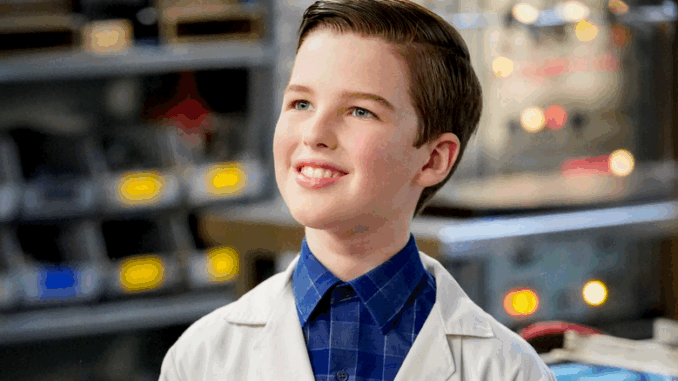
After seven heartfelt seasons, Young Sheldon has officially wrapped — and while the story of Sheldon Cooper’s childhood may have reached its final chapter, the show’s cultural footprint continues to grow. With its rare blend of intellect, warmth, and small-town realism, Young Sheldon may well go down as one of the most important sitcoms of the streaming era.
More Than Just a Prequel
When Young Sheldon first premiered in 2017, many critics were skeptical. Could a spin-off of a wildly popular comedy (The Big Bang Theory) work without a laugh track or traditional sitcom structure? The answer turned out to be a resounding yes.
Through a single-camera format, intimate character development, and a gentle, often poignant tone, Young Sheldon reinvented what a network sitcom could be. It was not just a prequel — it was a character study, a family drama, and a love letter to curiosity, science, and resilience.
The Evolution of Sheldon Cooper
Iain Armitage’s portrayal of the young genius won acclaim from fans and critics alike. Over the course of the series, viewers watched Sheldon grow from an overly literal child to a self-aware young man grappling with loss, loneliness, and ambition. His emotional arc — particularly in the final seasons — elevated the show into more than just a comedy. It became a portrait of growing up different, and trying to find your place in the world.
Narrated by Jim Parsons, the adult Sheldon’s reflections added a bittersweet contrast to the innocence of childhood, especially in the final season when tragedy strikes the Cooper family with the death of George Sr.
A Show Grounded in Heartland Realism

Set in East Texas during the 1980s and ’90s, Young Sheldon captured the rhythms of small-town life with striking authenticity. Religion, education, family tension, and generational gaps were woven into the show’s DNA.
Unlike the fast-paced banter of The Big Bang Theory, this show gave space for silence, for glances, for real moments between characters. In doing so, it portrayed a type of American family often missing from prime-time television — flawed, loving, confused, hopeful.
Planting Seeds for Future Stories
As the series ends, CBS isn’t closing the book on the Big Bang universe just yet. The upcoming spin-off Georgie & Mandy’s First Marriage is already in development, bringing back familiar faces while exploring fresh terrain: young marriage, parenthood, and the generational evolution of the Cooper family legacy.
Rumors are also swirling about possible future series focused on Sheldon’s early college years or even a deeper look into Meemaw’s life — fan-favorite Annie Potts has hinted she’d be open to a standalone show.
What Young Sheldon Taught Us
Beyond the laughs and tears, the show left behind powerful lessons:
-
You don’t have to be like everyone else to belong.
-
Brilliance doesn’t excuse bad behavior — it requires guidance and empathy.
-
Family is complicated, but it’s worth fighting for.
In a time when television is dominated by spectacle and speed, Young Sheldon slowed things down. It invited viewers into a modest living room in Texas, sat them at the dinner table, and reminded them what it means to grow up — and to raise a child — in an unpredictable world.
What’s Next?
As Young Sheldon bows out, viewers are asking: what will fill the emotional and intellectual space it leaves behind? Whether it’s more from the Cooper family or a brand-new story, one thing is clear: Young Sheldon wasn’t just a show — it was a statement.
A statement that family comedies can still matter. That science and heart don’t have to be at odds. And that sometimes, the quietest voices tell the most powerful stories.
